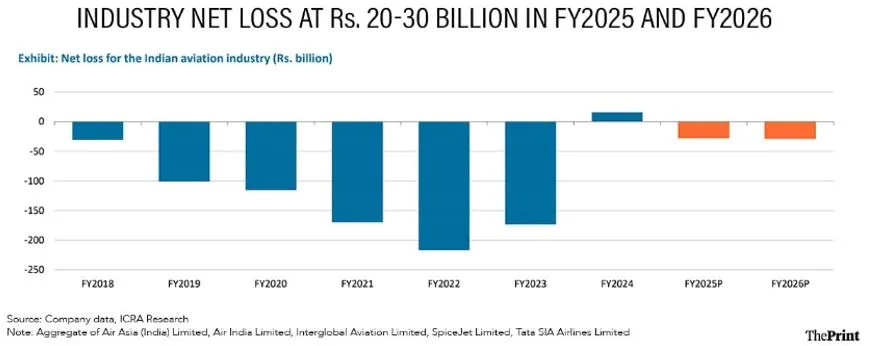

6th December 2024 (11 Topics)
Context
The Bharatiya Vayuyan Vidheyak (2024), or the Indian Aviation Bill, has been passed in the Indian Parliament. It aims to replace the Aircraft Act of 1934 and update India’s aviation laws to align with international standards and improve the sector's efficiency. The bill, passed by both Houses of Parliament, seeks to address key issues in India’s aviation sector, including safety, consumer protection, and ease of doing business.
Key Provisions and Objectives of the Bill:
- Enhancing Safety and Regulatory Oversight: The bill aims to improve safety standards in the aviation sector, ensuring better regulatory oversight and consumer protection in line with global practices.
- It focuses on setting up stronger governance structures for civil aviation authorities to boost accountability and transparency.
- Self-Reliance in Aircraft Manufacturing: The bill encourages self-reliance in aircraft manufacturing and maintenance within India, which could help the country become more competitive in the global aviation market.
- Regulation of Aviation Components: The bill allows the central government to regulate various aspects of civil aviation, including the issuance of licenses for aircraft-related operations (e.g., Radio Telephone Operator Certificate).
- It also empowers the government to establish rules for civil aviation security and adherence to international aviation conventions.
- Removal of Redundancies: The bill seeks to remove ambiguities and redundancies in the existing Aircraft Act of 1934, making the system more streamlined and easier to implement.
- It also includes provisions for penalties, fines, or imprisonment for violations, making enforcement more robust.
- Emergency Powers: The government is empowered to take emergency actions related to public safety and tranquillity in the aviation sector.
- This includes the ability to provide compensation for losses or damages in aviation-related incidents, along with mechanisms for appeals against certain decisions (e.g., compensation, licensing, penalties).
- Repeal of the Aircraft Act, 1934: The bill repeals the Aircraft Act of 1934 and updates the legal framework to better cater to current challenges and future growth in the aviation sector.
Issues Addressed in Parliament:
- Airfare Concerns: During the debate, MPs raised concerns about rising airfares. In response, the Civil Aviation Minister clarified that airfares in India are deregulated (since 1994) and determined by airlines. However, the government monitors fares and mandates that airlines inform the Ministry before setting prices for specific routes.
- He also emphasized that the UDAN Scheme (Ude Desh ka Aam Naagrik) is helping to increase accessibility by improving air travel options for more people.
- Title Change of the Bill: There was a debate over the bill’s title being changed from English to Hindi. The minister explained that the change was made to highlight India’s heritage and culture, and assured that there was no violation of the Constitution regarding language use in lawmaking.
|
Fact Box: India’s Aviation Sector
|
More Articles



